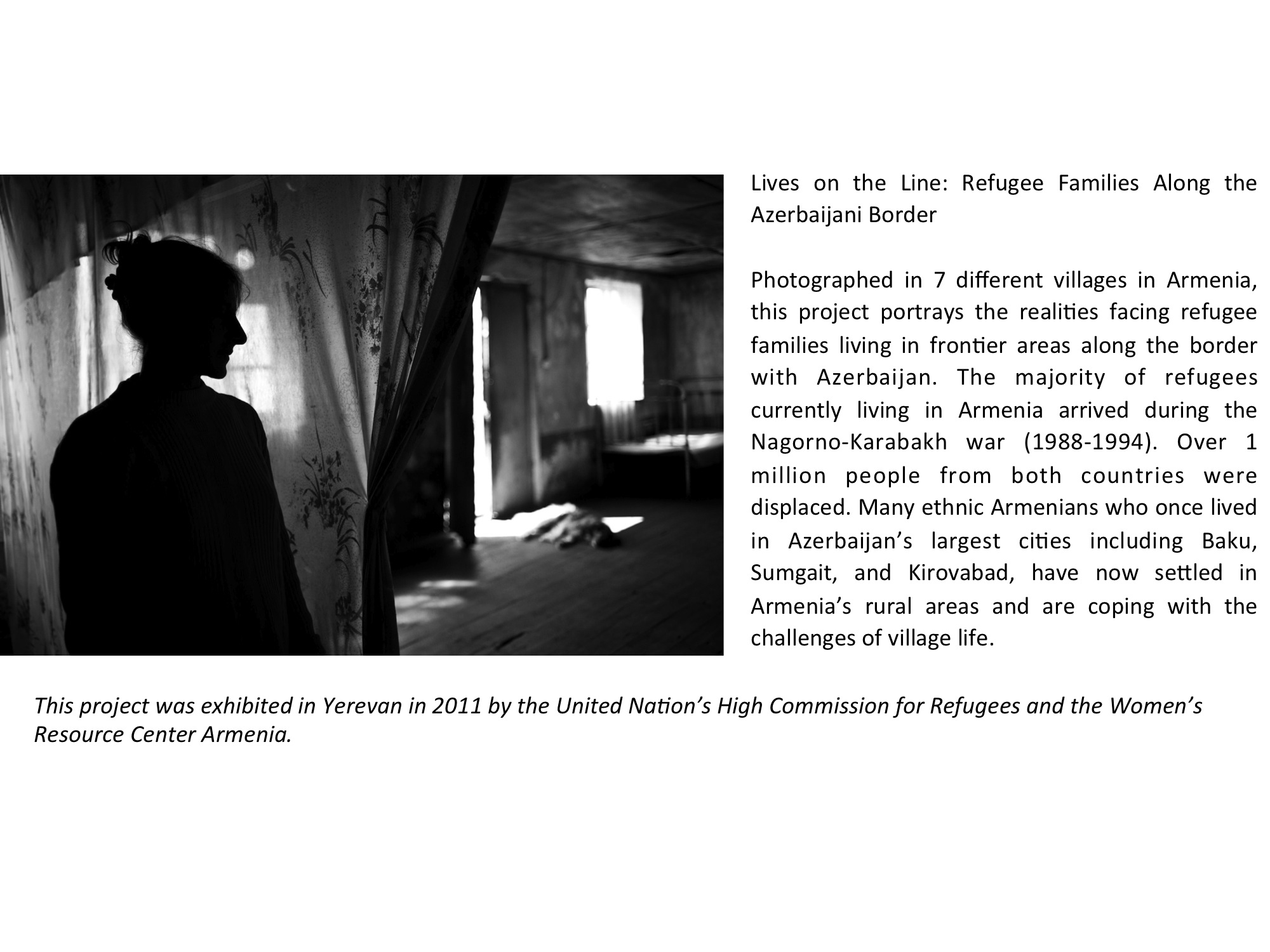
To learn more about the work done by the Women's Resource Center on behalf of refugee families in Armenia, click HERE.
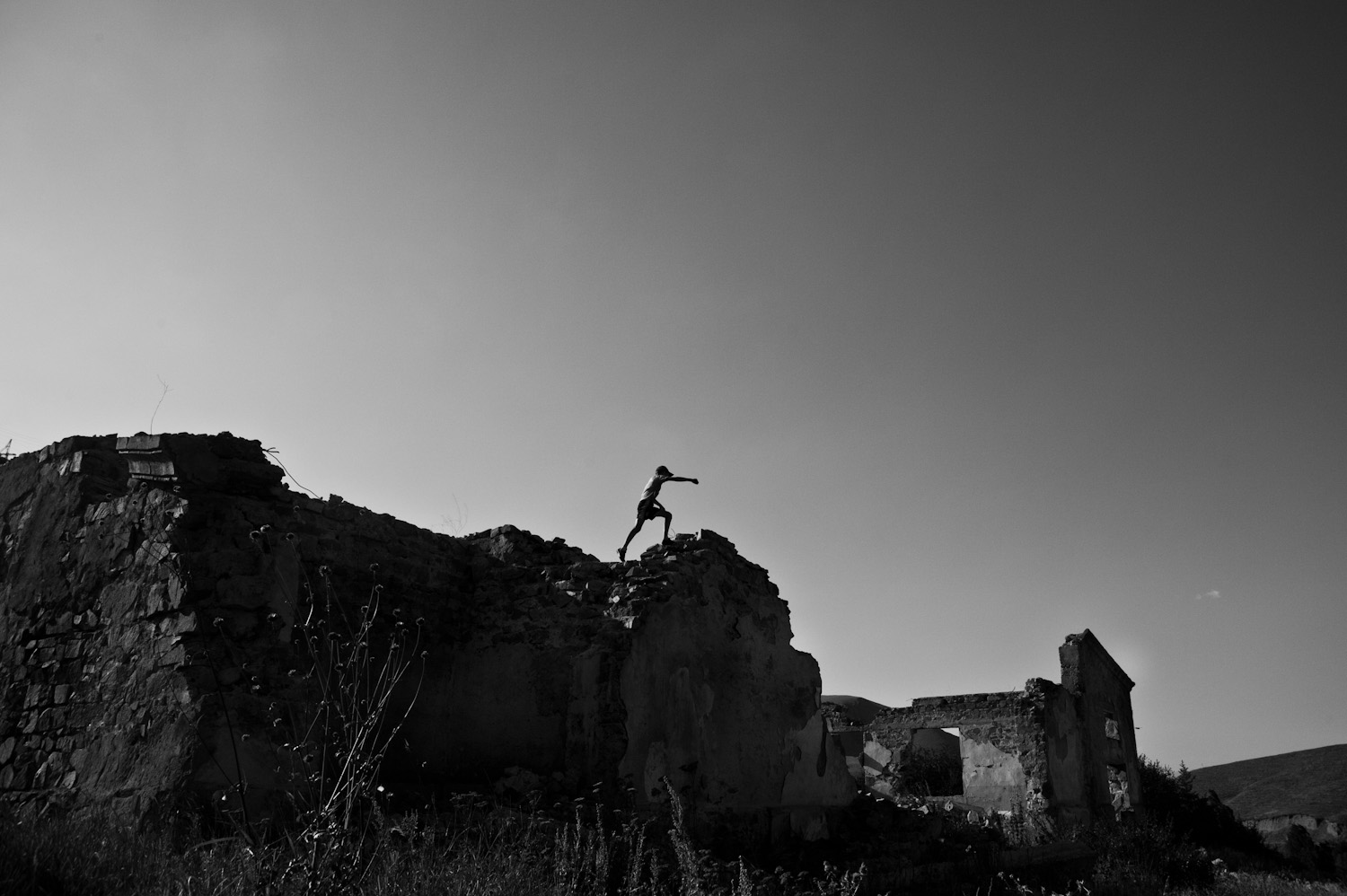
Abandoned homes in Dastakert are Alik's playground. His parents are refugees from Azerbaijan. Of the 4000 residents who once lived here, there are 320 left, mostly refugees.
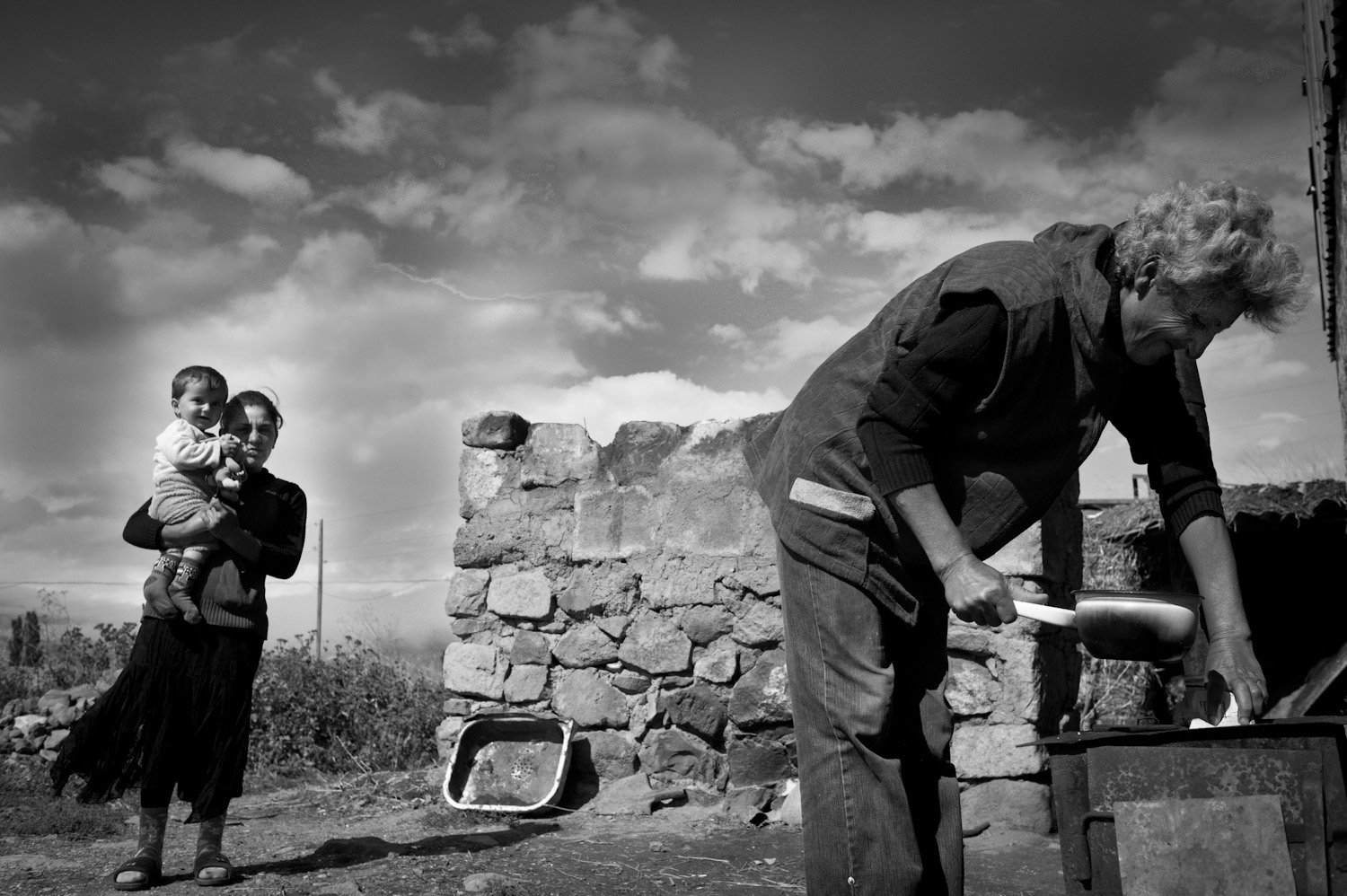
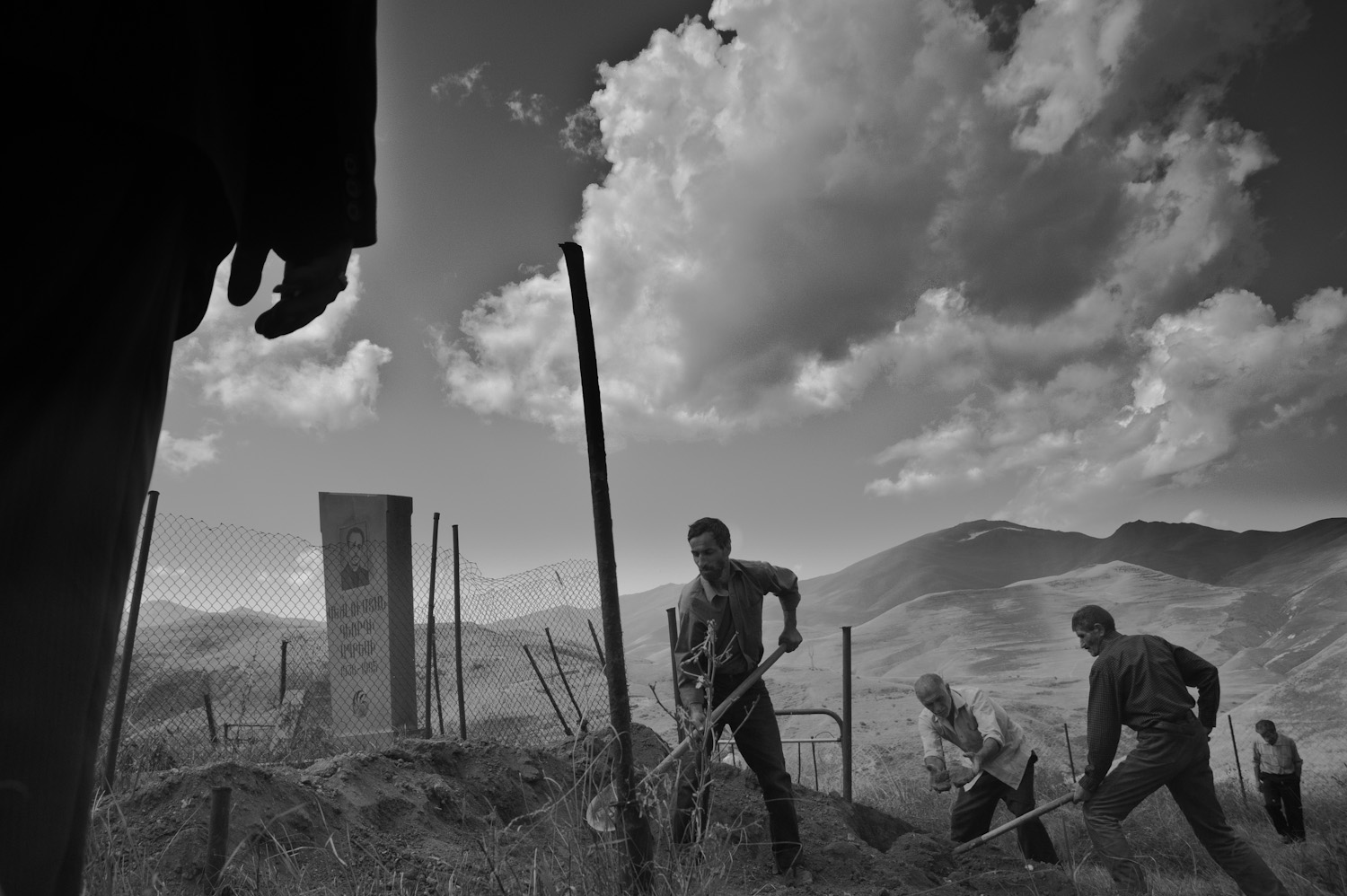
Men in Dastakert, mostly refugees from Azerbaijan, anxiously await the reopening of a copper plant which, despite its detrimental effects on health and the environment, promises desperately needed jobs.
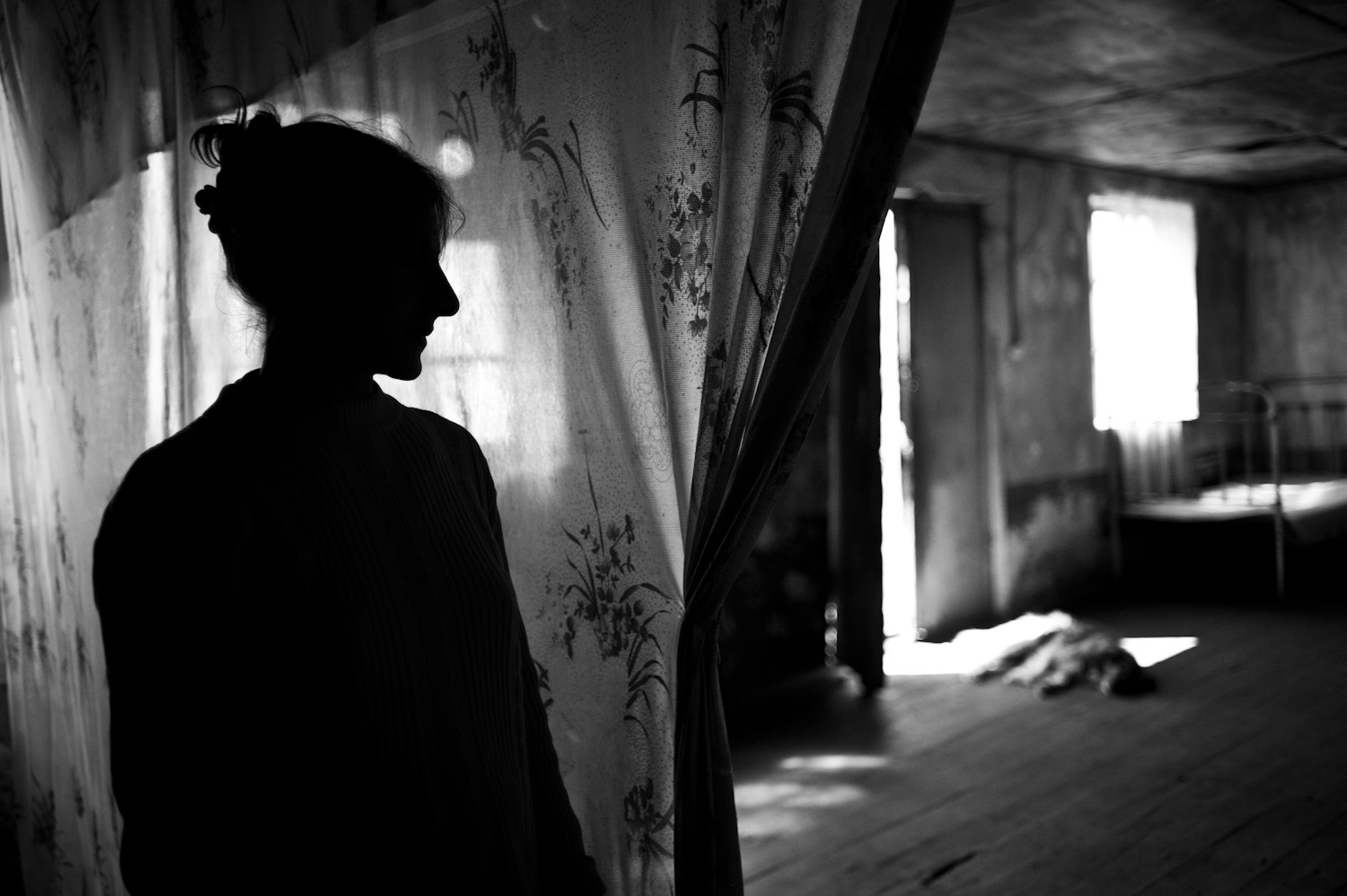
In Tretuk village, this abandoned home of an Azerbaijani family has been inhabited by Grisha, his wife, and their 7 children since they moved to Armenia from Kirovabad. Grisha cannot find a job, the family lives on government subsidies.
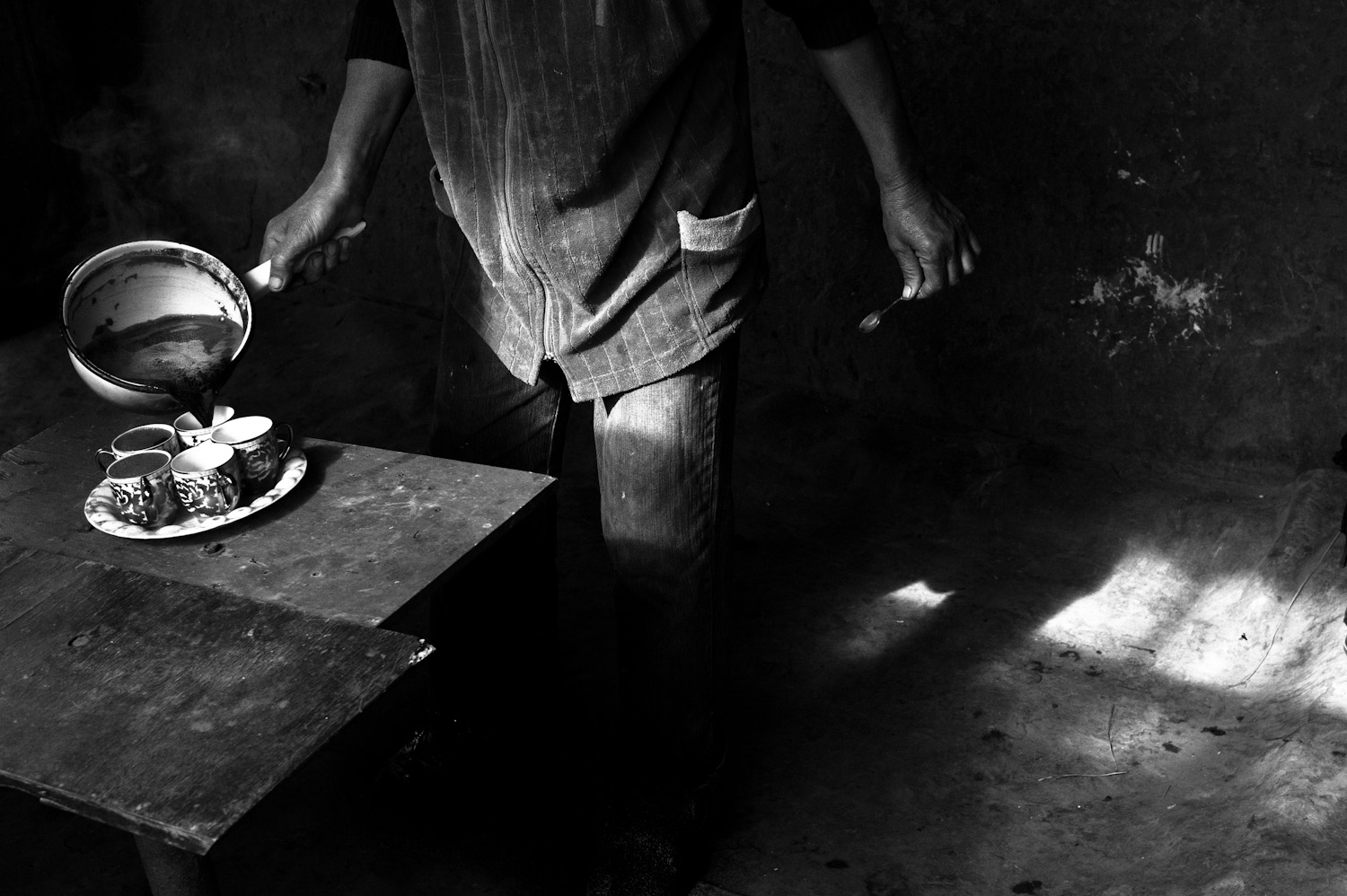
A refugee from Azerbaijan, Mrs. Janeta serves coffee at her home in Shatvan village. To help support her 10-member family, she cleans cow dung in neighbors' barns for $8 per job.
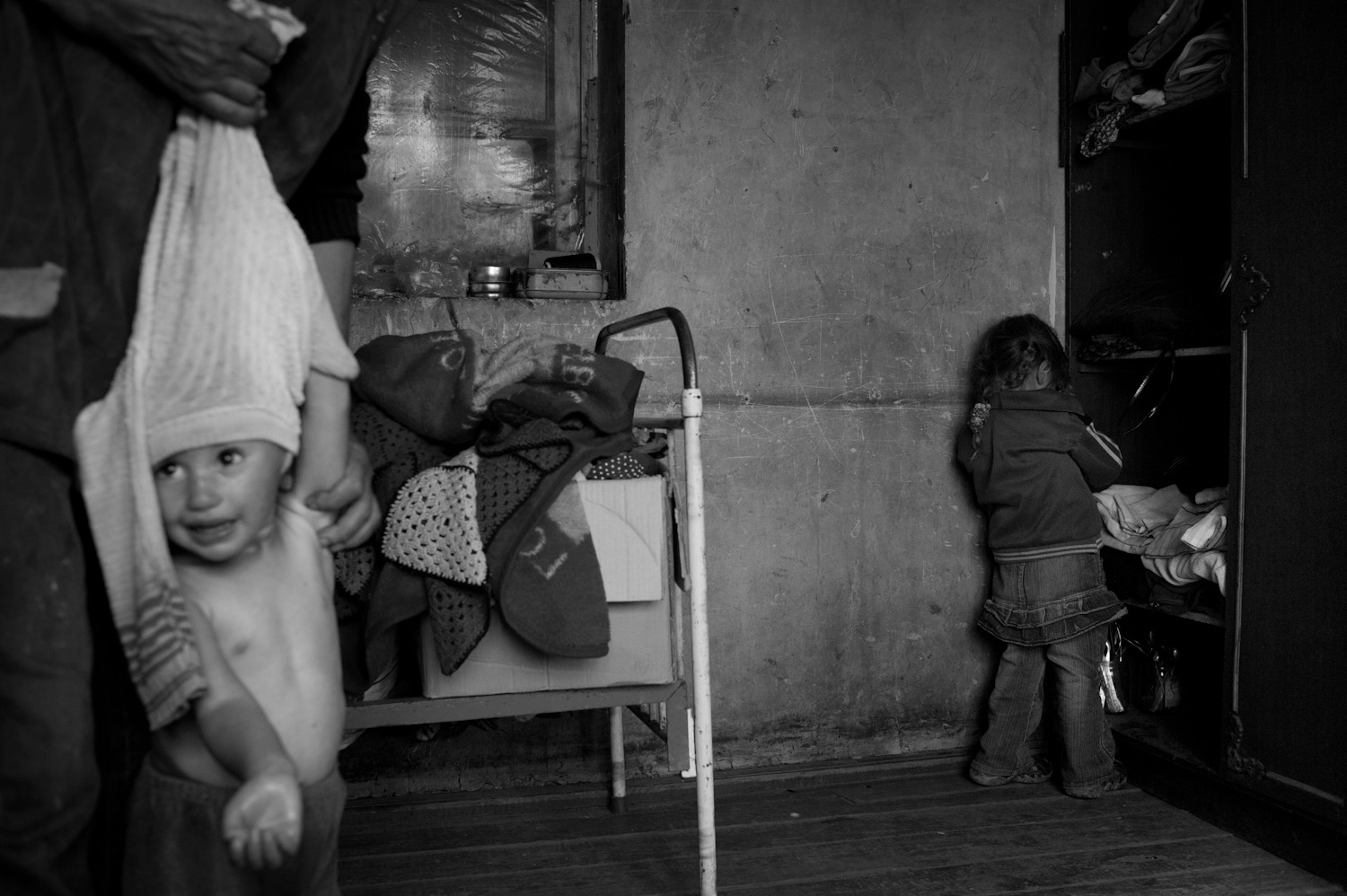
The Hovhannisyan children in Shatvan village have not had a birthday celebration in years, the family cannot afford the festivities. The family's diet is mostly soup, with meat being a rare luxury.
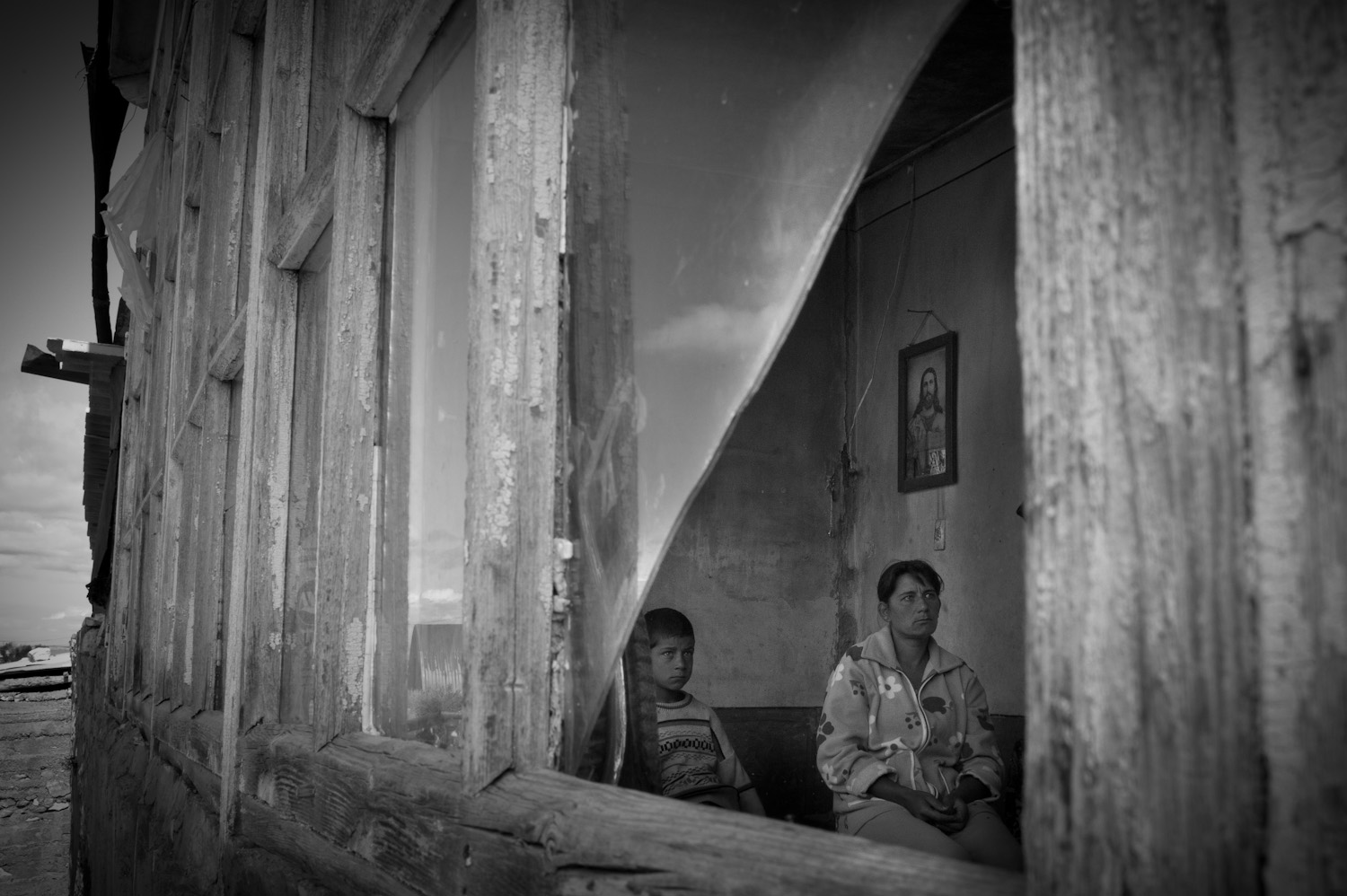
Veronica with son Vitalik in Tretuk village. She moved to Tretuk from Sumgait when she was 14. Veronica is a single mother with two boys, both of whom live at an orphanage for most of the year because she is unable to care for them.
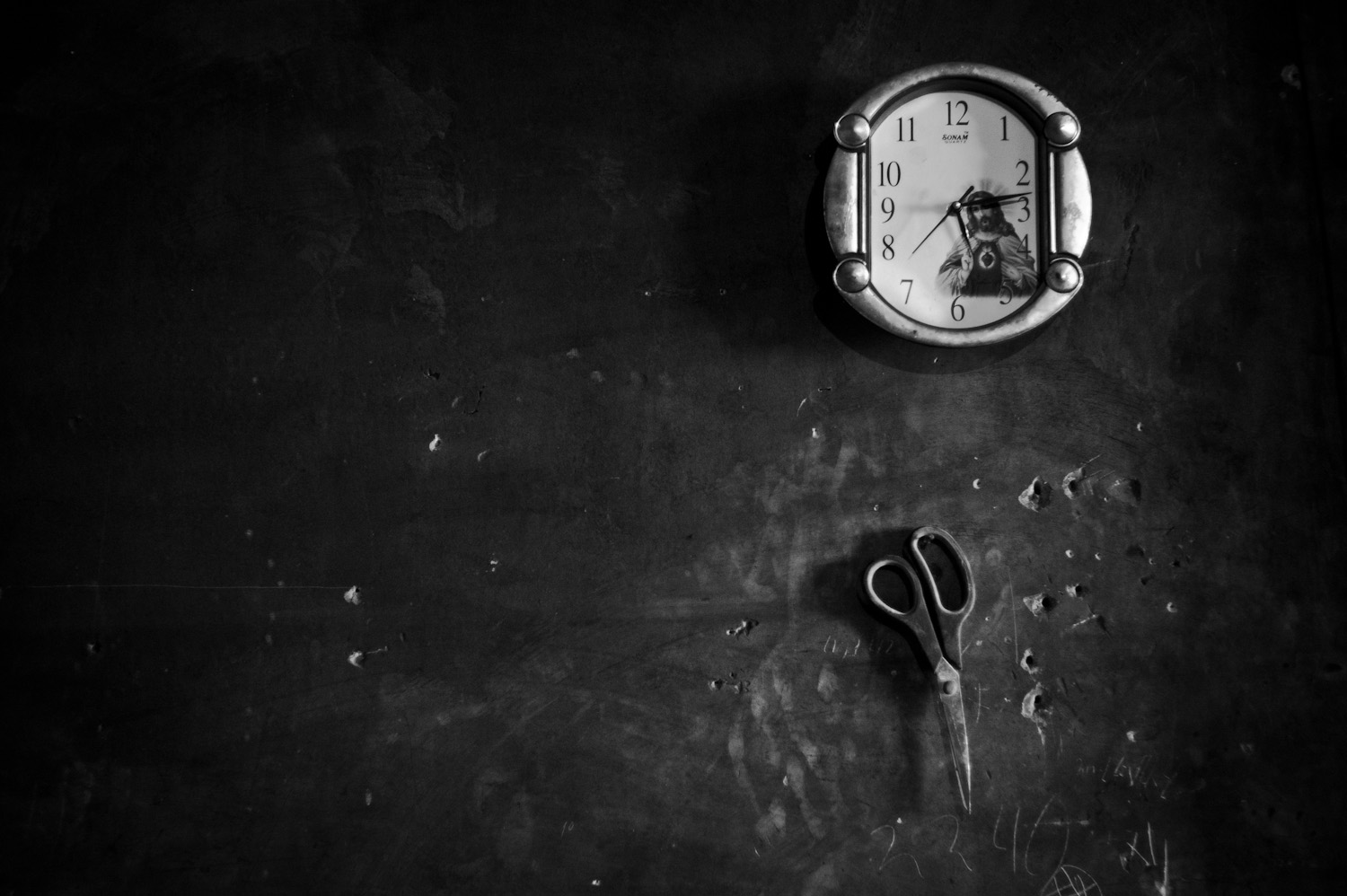
At the Hovhannisyan's home in Shatvan village. Refugees from Azerbaijan, the family is unable to repay a $1000 bank loan they took out at 24% to buy seed for planting. They are awaiting a court decision which may result in losing their home to the bank.
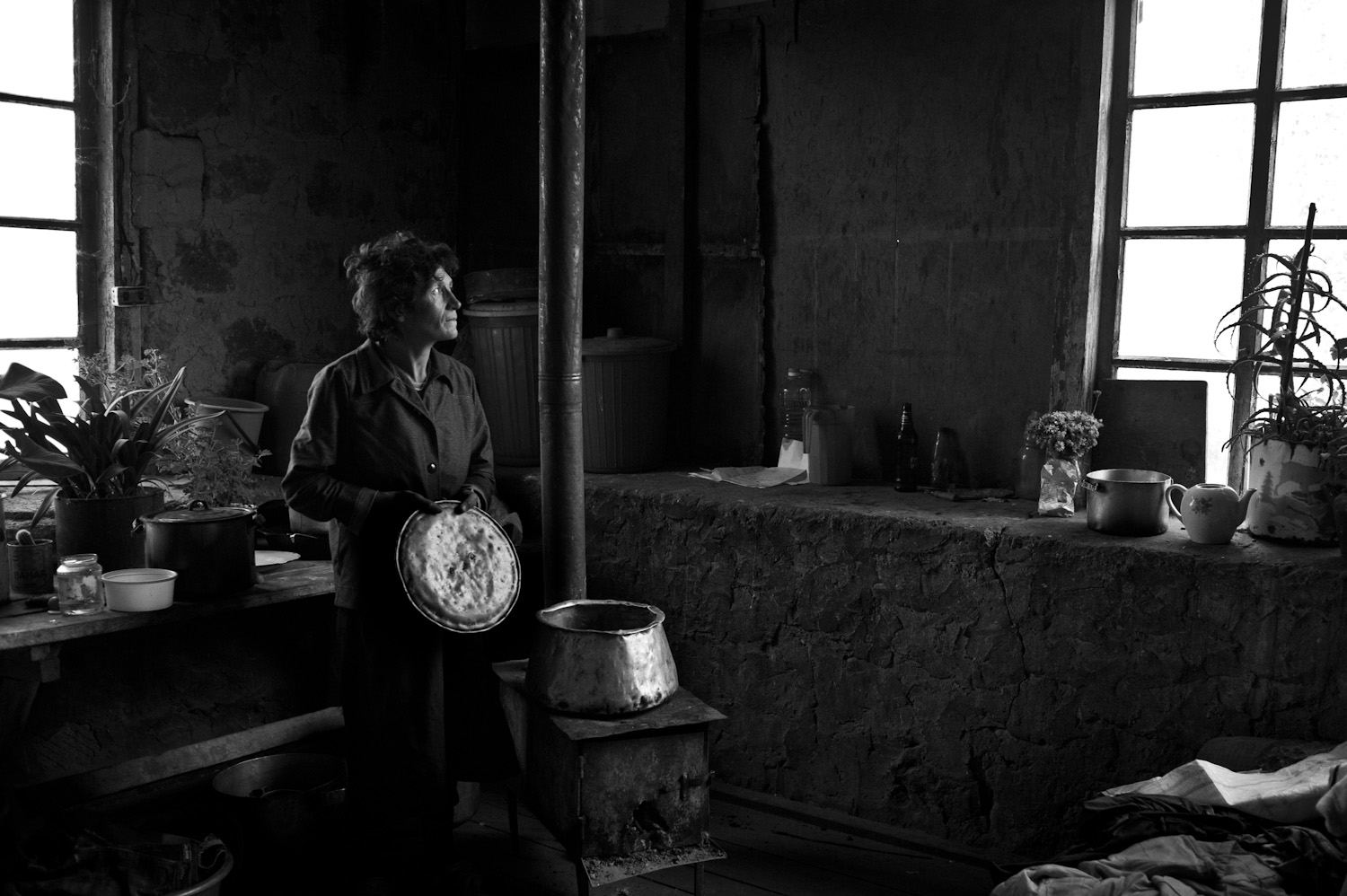
The Der Grigoryan family, although not refugees themselves, are one of the most impoverished in the refugee village of Jaghatsadzor. Before authorities stepped in to help, the family was planning to keep the children from school because they lacked proper clothes.
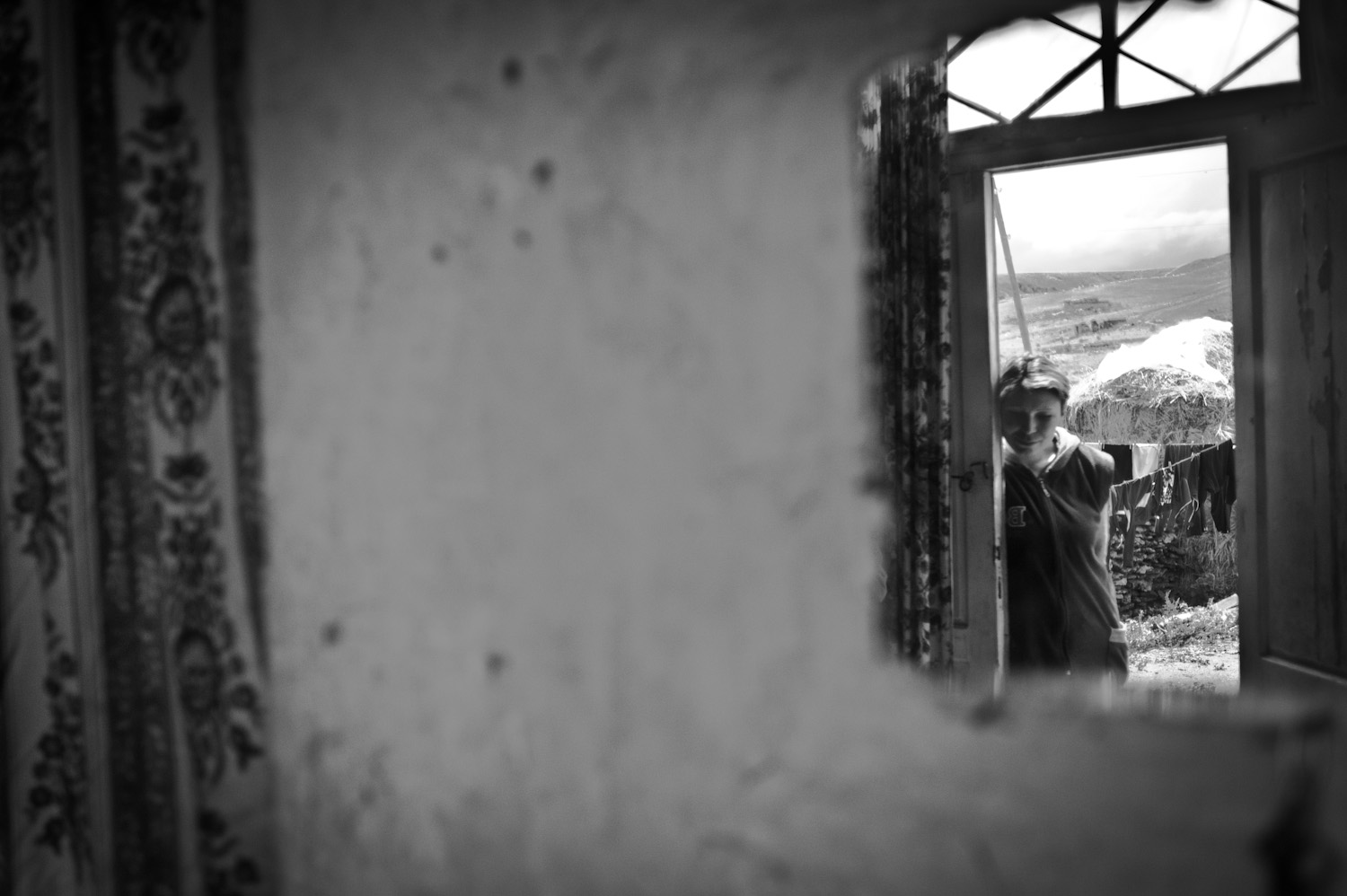
Vera Mejlumyan and her family fled the town of Shahumian in Azerbaijan to Jaghatsadzor village in the late 1980s during the Karabakh war. Unable to find work in Armenia, Vera has decided to leave for Russia.
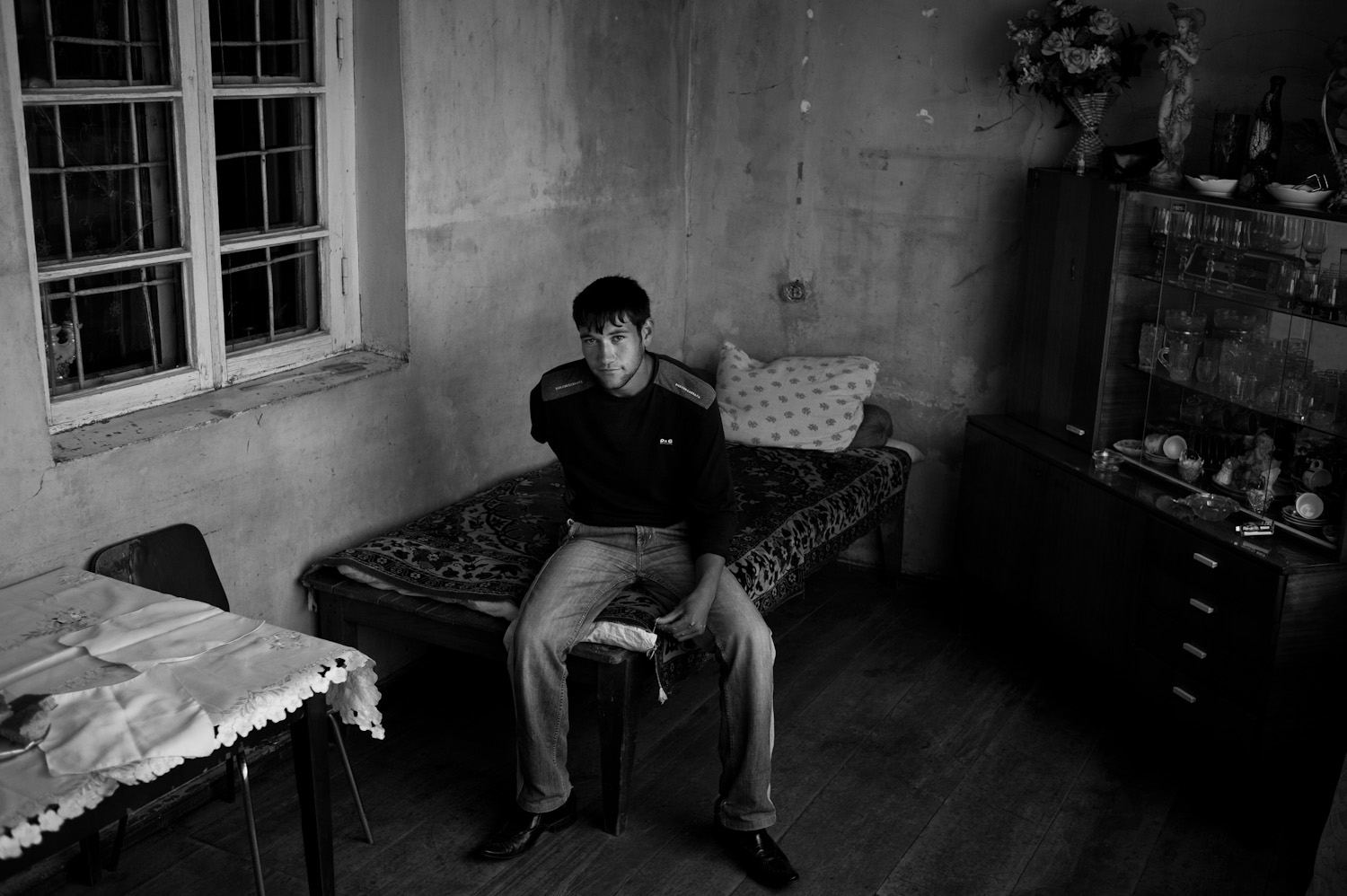
Gevork lost his arm in a firefight with Azerbaijani forces while patrolling the border. At the hospital, he fell in love with his nurse, but her parents forbid the relationship because of Gevork's disability.

Two of Grisha's seven children. Refugees from Kirovabad, Grisha and his 8-member family sleep together in one room warmed by a wood burning stove. They live in an Azerbaijani family's abandoned home.
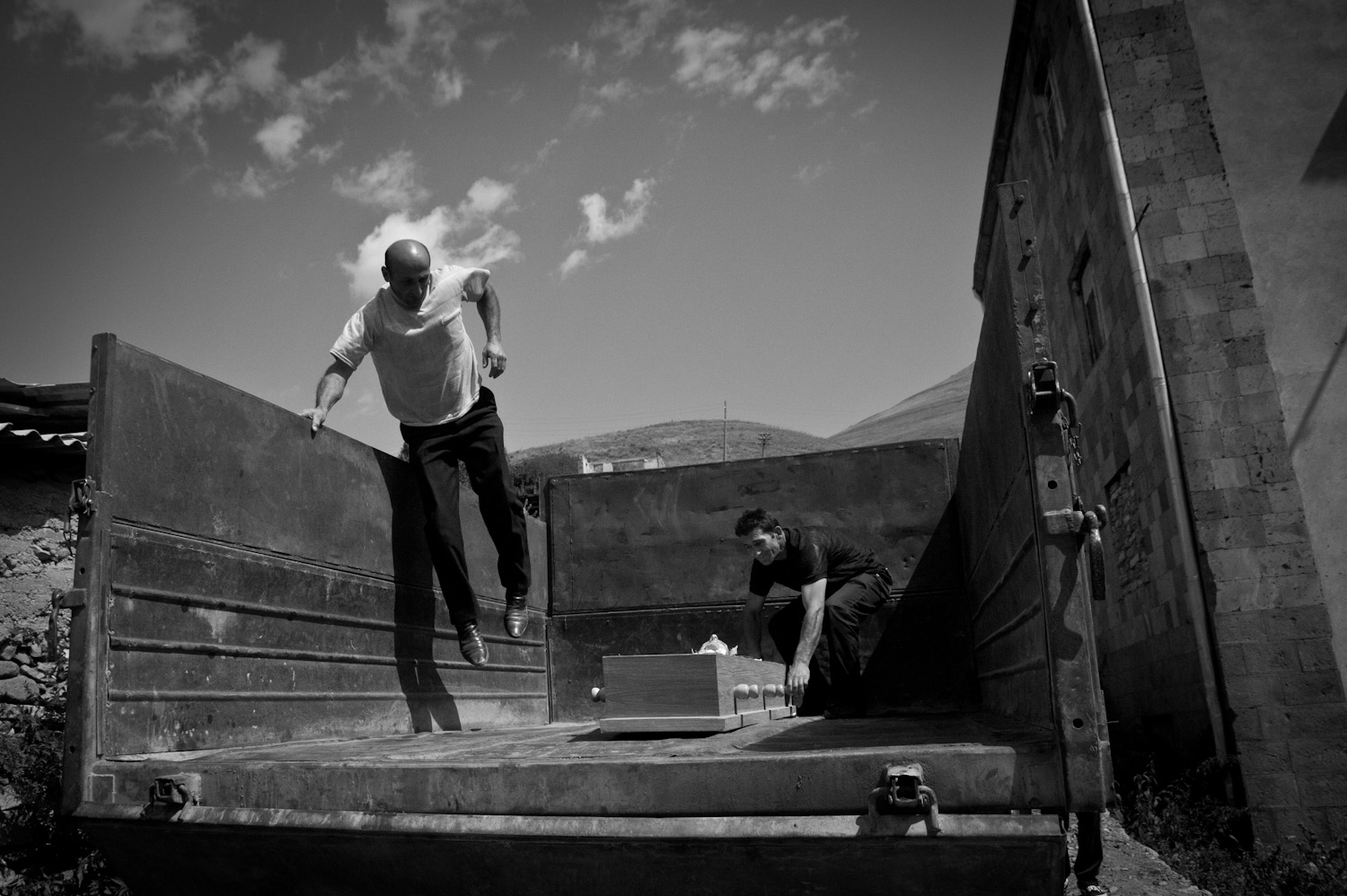
Zakhar, the town veterinarian, jumps into a jump truck which doubles as a hearse at funerals in Dastakert. 70% of the town's residents are refugees from the cities of Baku, Sumgait, or Kirovabad.
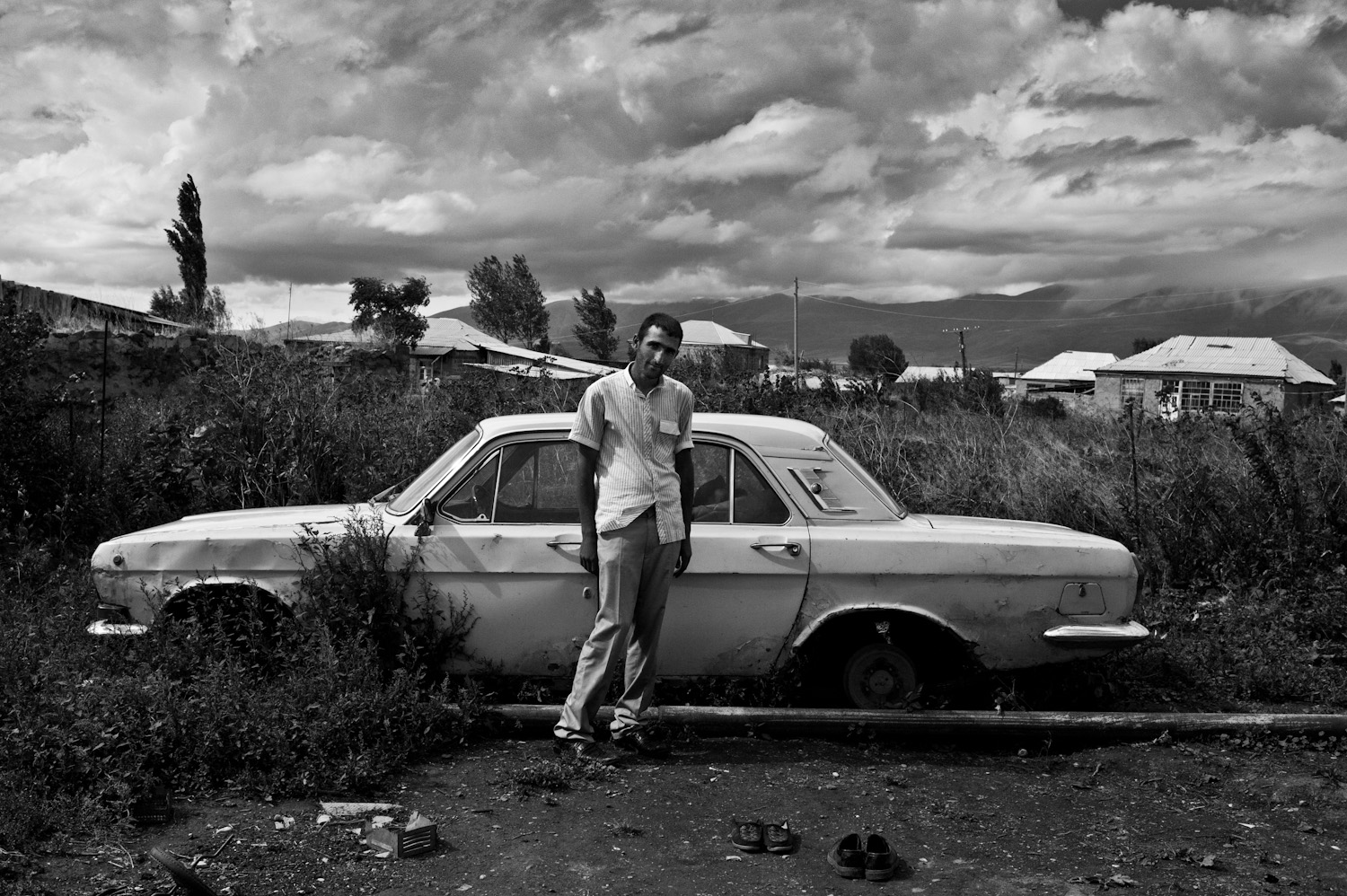
Hovhannes Hovhannisyan insisted on being photographed in front of his car. Refugees from Azerbaijan, Hovhannes' family has been unable to repay a bank loan and is awaiting a court decision which may result in losing their home.
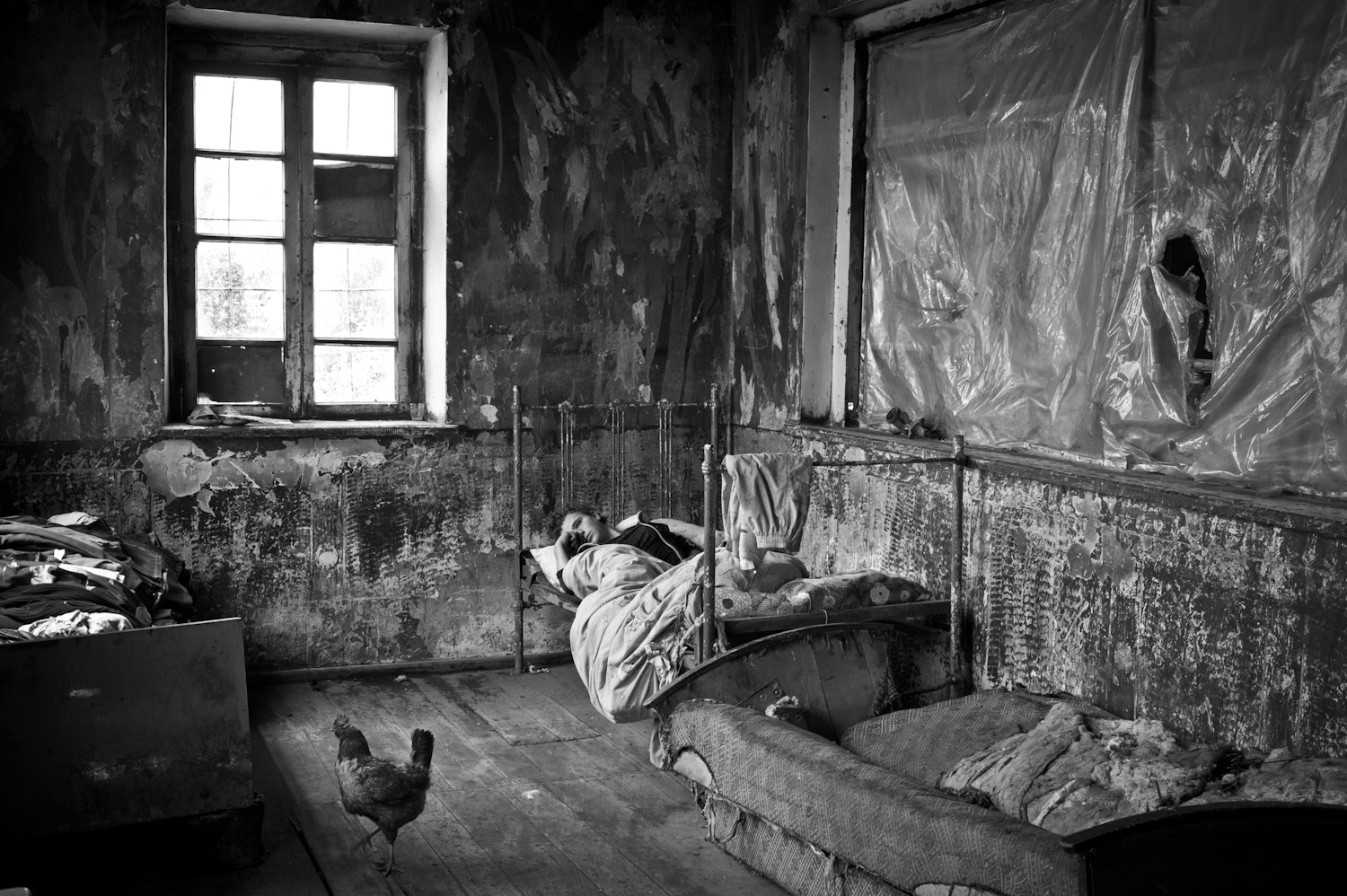
Zhenya, 13, suffers from an eye infection at home in the village of Metz Masrik. Her grandfather Robert, a refugee from Azerbaijan, often rummages through nearby garbage dumps in search of items to burn for fuel.
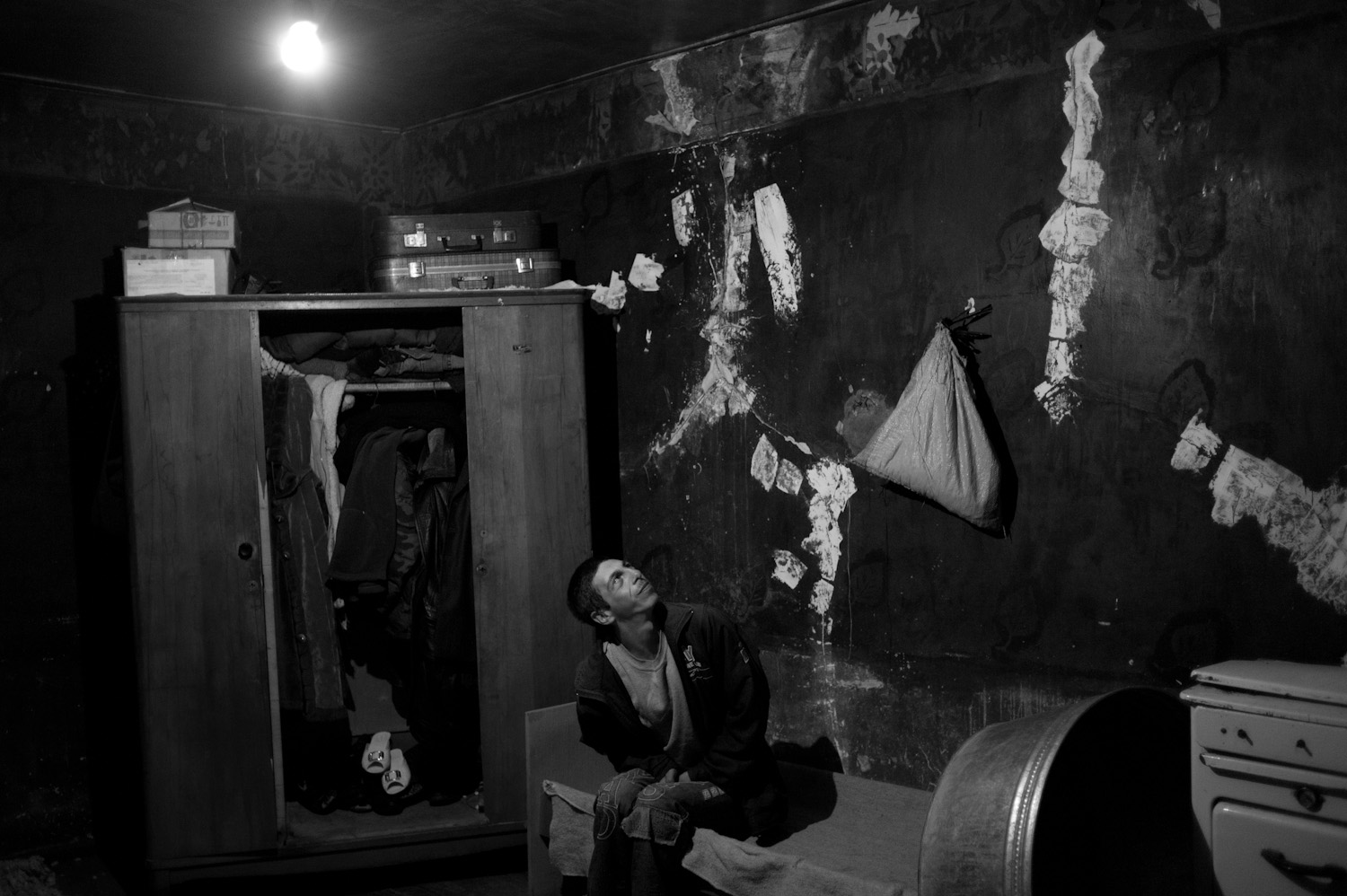
Grisha and his wife moved to this abandoned Azerbaijani home in Tretuk village after arriving from Kirovabad. They have 7 children - the eldest a disabled boy and the youngest 7-month-old twins.
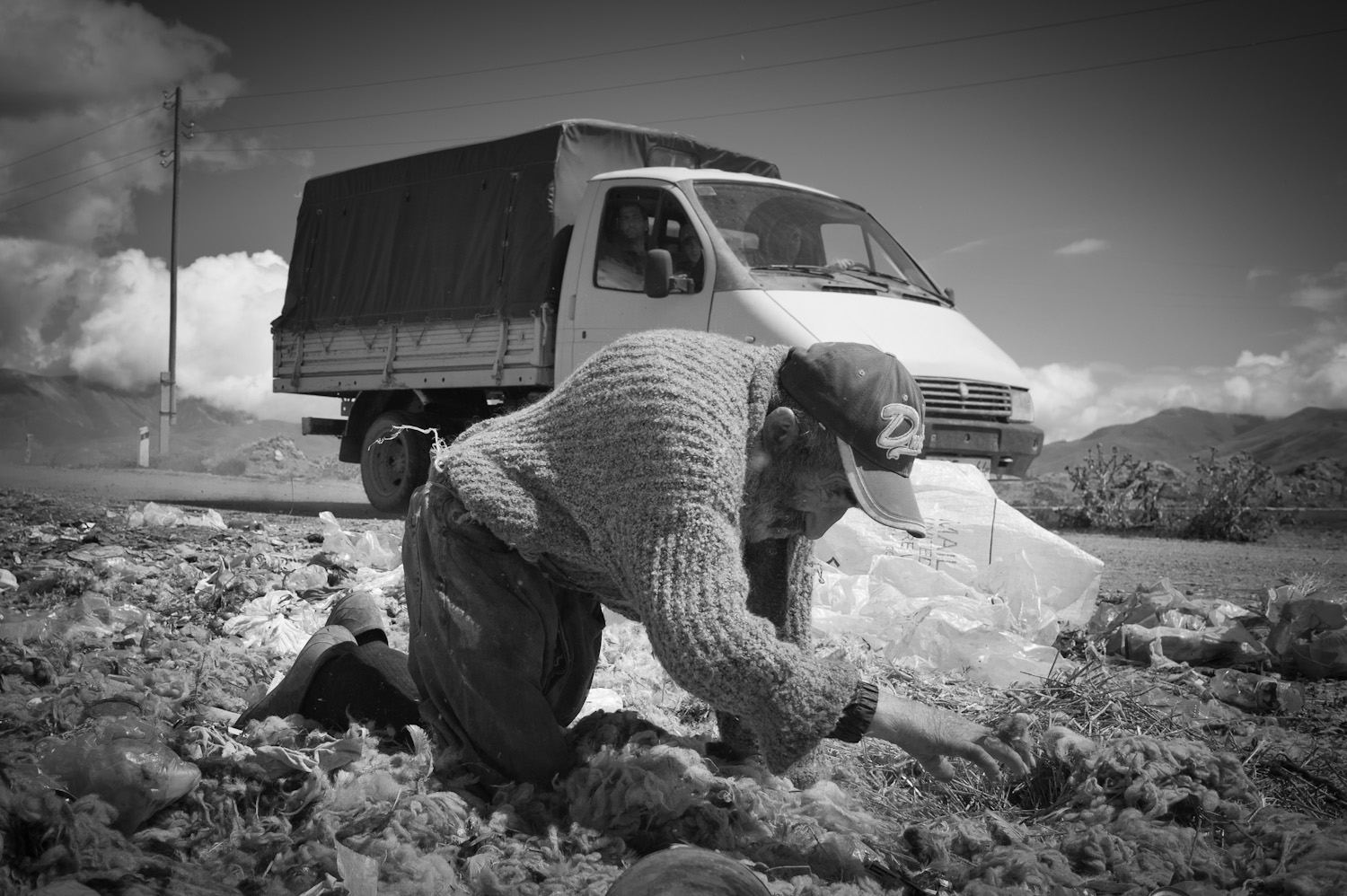
Robert Khachatryan, 69, rummages through a garbage dump in Metz Masrik village searching for items to burn for fuel. He is the eldest of an 11-member family and arrived to Armenia from Aygestan village in Azerbaijan.

Vladimir Gabrielyan was 75 when he passed away. He and his wife Rayisa are refugees from Baku and moved to Dastakert during the Karabakh war. The couple had no children.
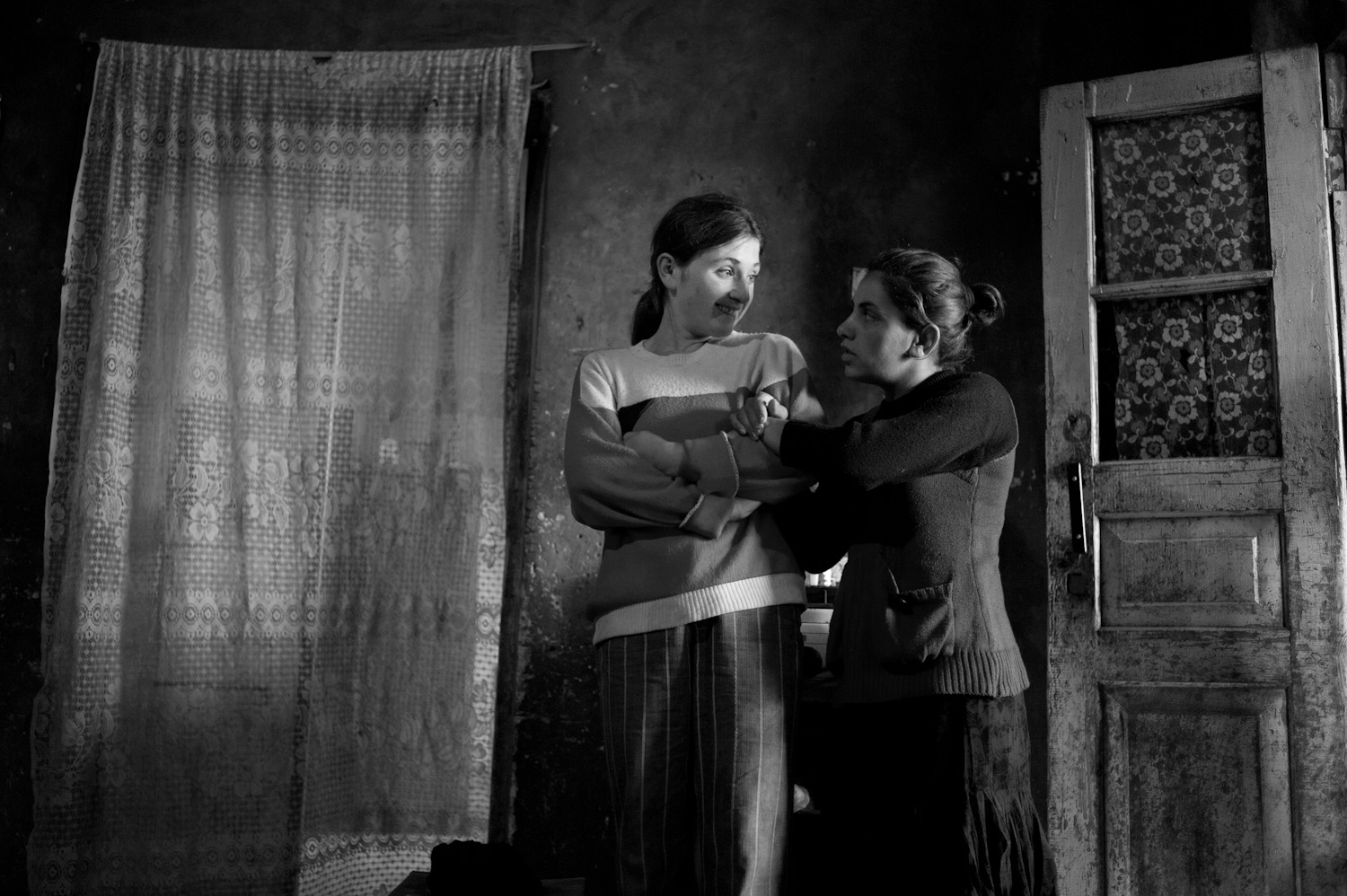
The Hovhannisyan family women at home in Shatvan village. Refugees from Azerbaijan, the family is unable to repay a $1000 bank loan they took out at 24% to buy seed for planting. A dry spell destroyed their potato crop and the cow used as collateral died.
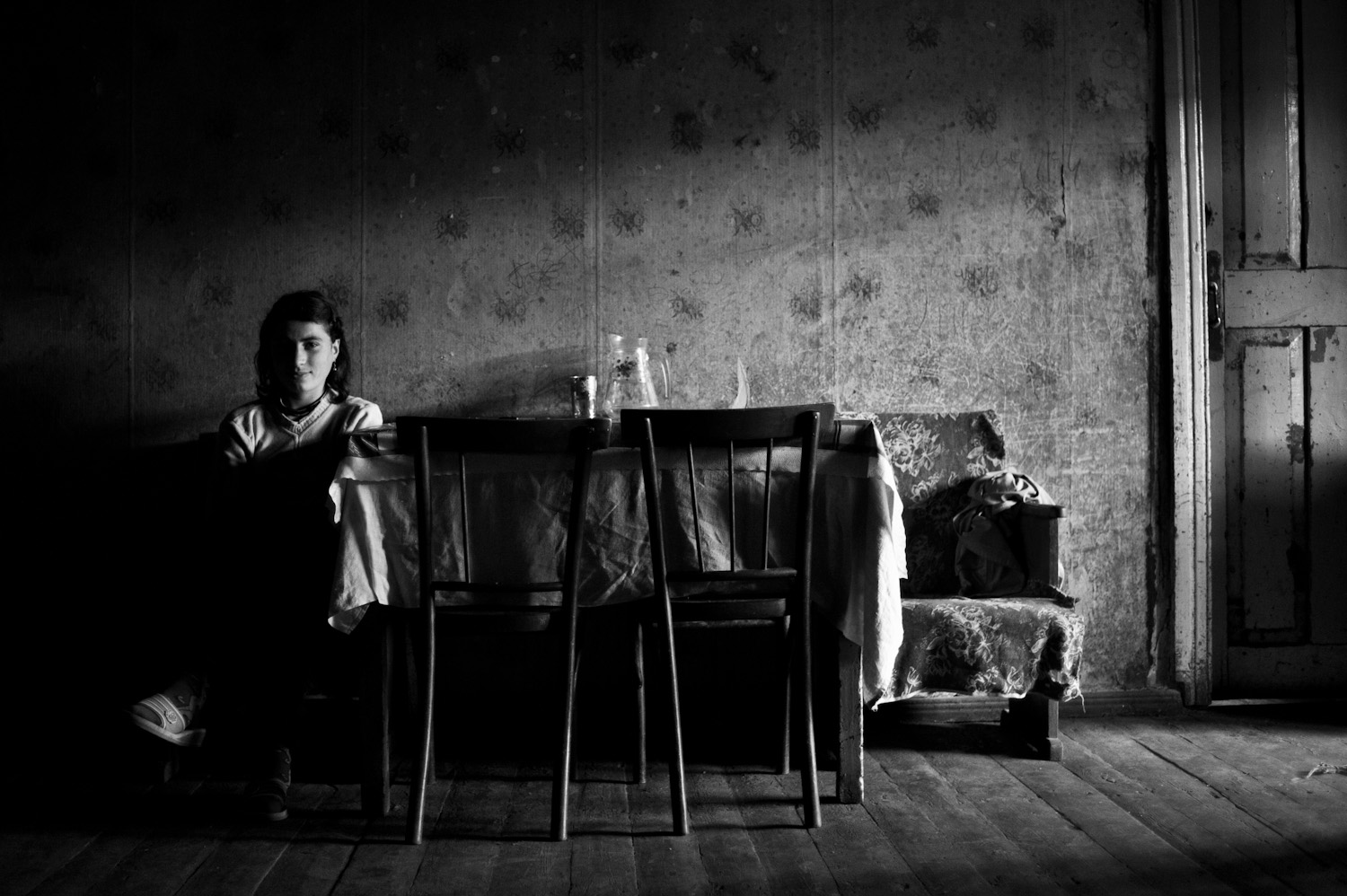
Lilit at home in Dastakert. Her father Roudik moved to Dastakert from Baku 23 years ago. To help her family get by, Lilit works in a neighbor's field picking berries and harvesting grass. Lilit's dream is to leave the small town and move to Armenia's capital Yerevan.
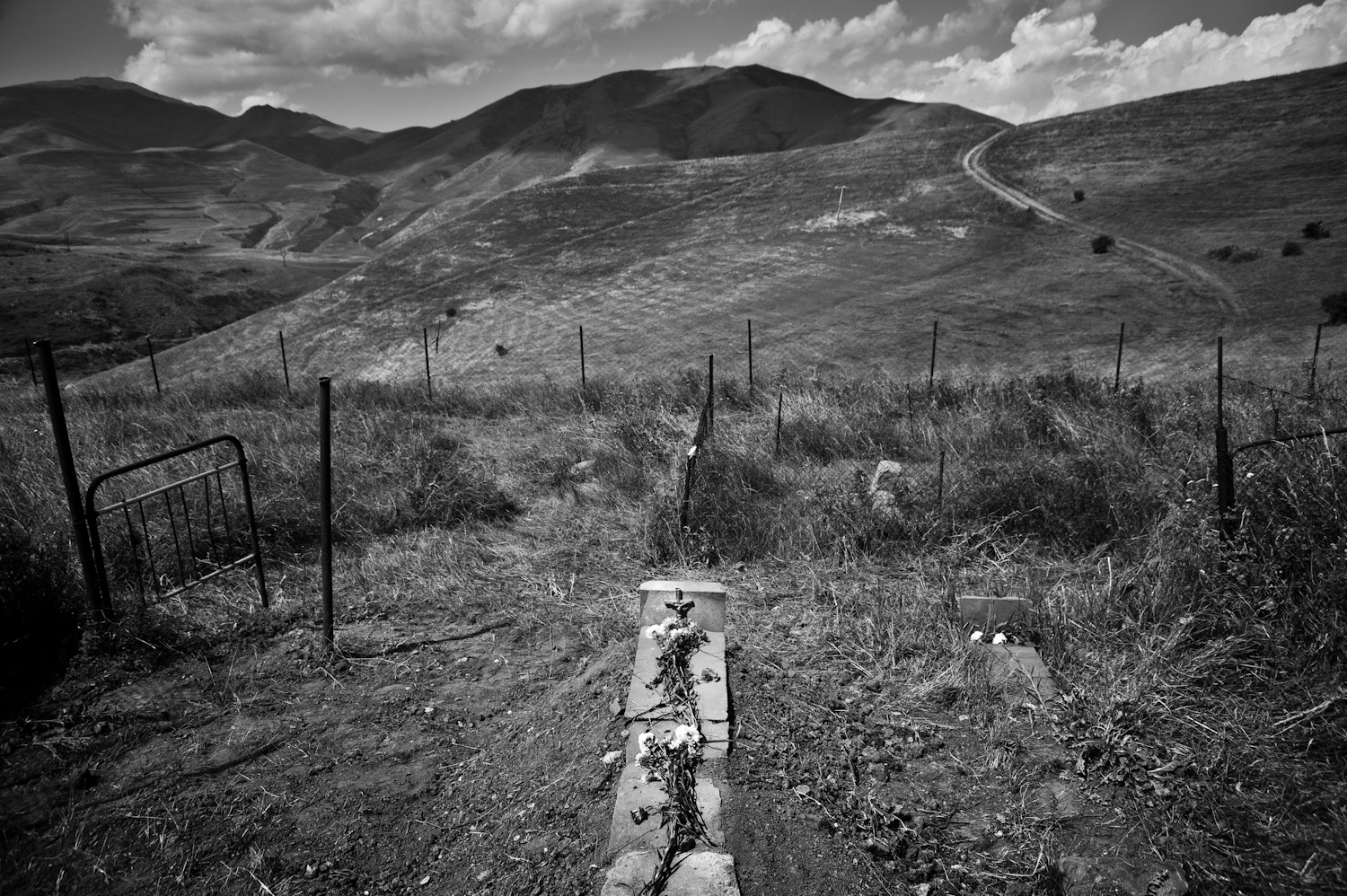
Vladimir Gabrielyan's final resting place in the hills above Dastakert - he was 75 when he passed. He and his wife Rayisa, refugees from Baku, moved to Dastakert during the Karabakh war. The couple had no children.






















To learn more about the work done by the Women's Resource Center on behalf of refugee families in Armenia, click HERE.
Abandoned homes in Dastakert are Alik's playground. His parents are refugees from Azerbaijan. Of the 4000 residents who once lived here, there are 320 left, mostly refugees.
Men in Dastakert, mostly refugees from Azerbaijan, anxiously await the reopening of a copper plant which, despite its detrimental effects on health and the environment, promises desperately needed jobs.
In Tretuk village, this abandoned home of an Azerbaijani family has been inhabited by Grisha, his wife, and their 7 children since they moved to Armenia from Kirovabad. Grisha cannot find a job, the family lives on government subsidies.
A refugee from Azerbaijan, Mrs. Janeta serves coffee at her home in Shatvan village. To help support her 10-member family, she cleans cow dung in neighbors' barns for $8 per job.
The Hovhannisyan children in Shatvan village have not had a birthday celebration in years, the family cannot afford the festivities. The family's diet is mostly soup, with meat being a rare luxury.
Veronica with son Vitalik in Tretuk village. She moved to Tretuk from Sumgait when she was 14. Veronica is a single mother with two boys, both of whom live at an orphanage for most of the year because she is unable to care for them.
At the Hovhannisyan's home in Shatvan village. Refugees from Azerbaijan, the family is unable to repay a $1000 bank loan they took out at 24% to buy seed for planting. They are awaiting a court decision which may result in losing their home to the bank.
The Der Grigoryan family, although not refugees themselves, are one of the most impoverished in the refugee village of Jaghatsadzor. Before authorities stepped in to help, the family was planning to keep the children from school because they lacked proper clothes.
Vera Mejlumyan and her family fled the town of Shahumian in Azerbaijan to Jaghatsadzor village in the late 1980s during the Karabakh war. Unable to find work in Armenia, Vera has decided to leave for Russia.
Gevork lost his arm in a firefight with Azerbaijani forces while patrolling the border. At the hospital, he fell in love with his nurse, but her parents forbid the relationship because of Gevork's disability.
Two of Grisha's seven children. Refugees from Kirovabad, Grisha and his 8-member family sleep together in one room warmed by a wood burning stove. They live in an Azerbaijani family's abandoned home.
Zakhar, the town veterinarian, jumps into a jump truck which doubles as a hearse at funerals in Dastakert. 70% of the town's residents are refugees from the cities of Baku, Sumgait, or Kirovabad.
Hovhannes Hovhannisyan insisted on being photographed in front of his car. Refugees from Azerbaijan, Hovhannes' family has been unable to repay a bank loan and is awaiting a court decision which may result in losing their home.
Zhenya, 13, suffers from an eye infection at home in the village of Metz Masrik. Her grandfather Robert, a refugee from Azerbaijan, often rummages through nearby garbage dumps in search of items to burn for fuel.
Grisha and his wife moved to this abandoned Azerbaijani home in Tretuk village after arriving from Kirovabad. They have 7 children - the eldest a disabled boy and the youngest 7-month-old twins.
Robert Khachatryan, 69, rummages through a garbage dump in Metz Masrik village searching for items to burn for fuel. He is the eldest of an 11-member family and arrived to Armenia from Aygestan village in Azerbaijan.
Vladimir Gabrielyan was 75 when he passed away. He and his wife Rayisa are refugees from Baku and moved to Dastakert during the Karabakh war. The couple had no children.
The Hovhannisyan family women at home in Shatvan village. Refugees from Azerbaijan, the family is unable to repay a $1000 bank loan they took out at 24% to buy seed for planting. A dry spell destroyed their potato crop and the cow used as collateral died.
Lilit at home in Dastakert. Her father Roudik moved to Dastakert from Baku 23 years ago. To help her family get by, Lilit works in a neighbor's field picking berries and harvesting grass. Lilit's dream is to leave the small town and move to Armenia's capital Yerevan.
Vladimir Gabrielyan's final resting place in the hills above Dastakert - he was 75 when he passed. He and his wife Rayisa, refugees from Baku, moved to Dastakert during the Karabakh war. The couple had no children.